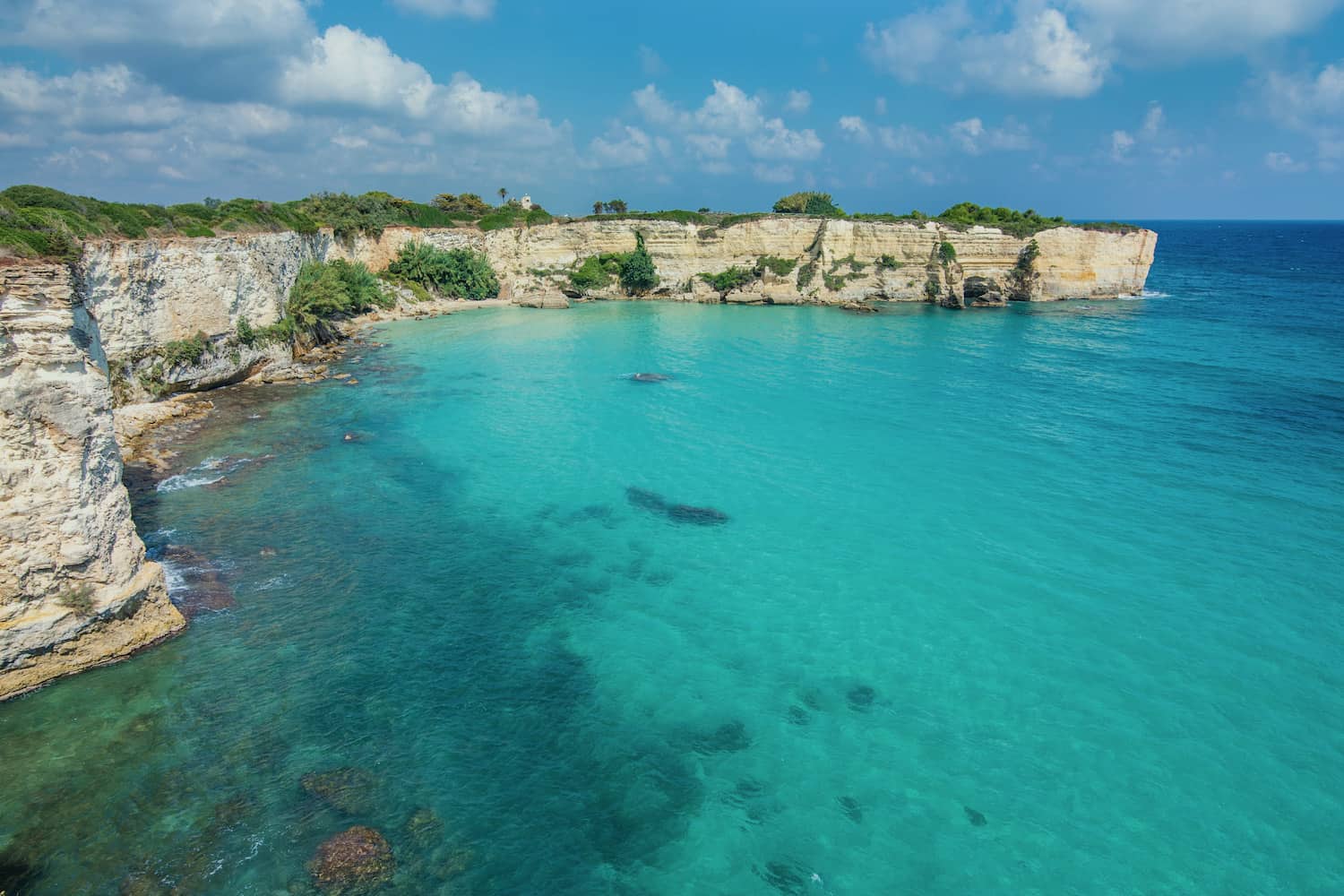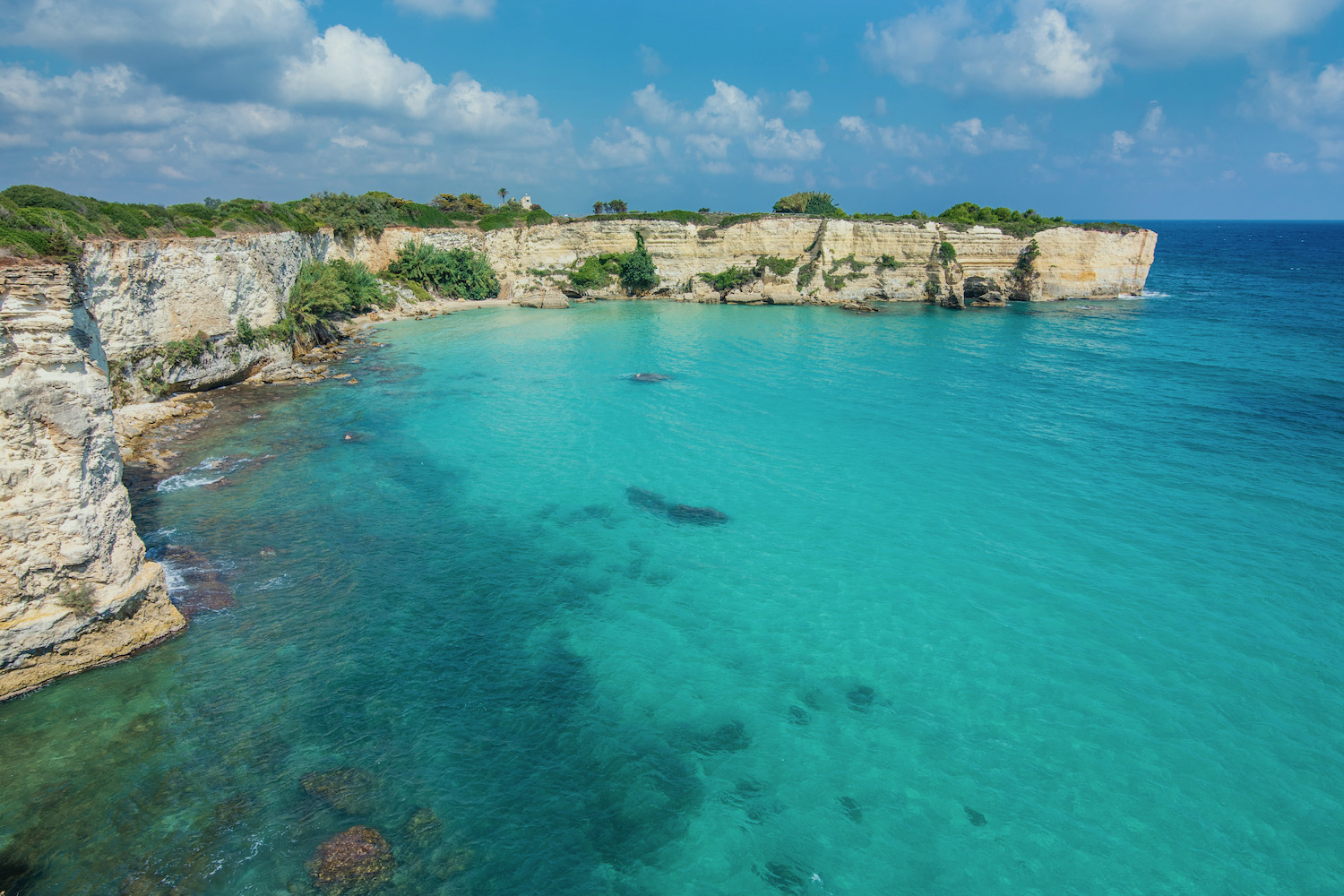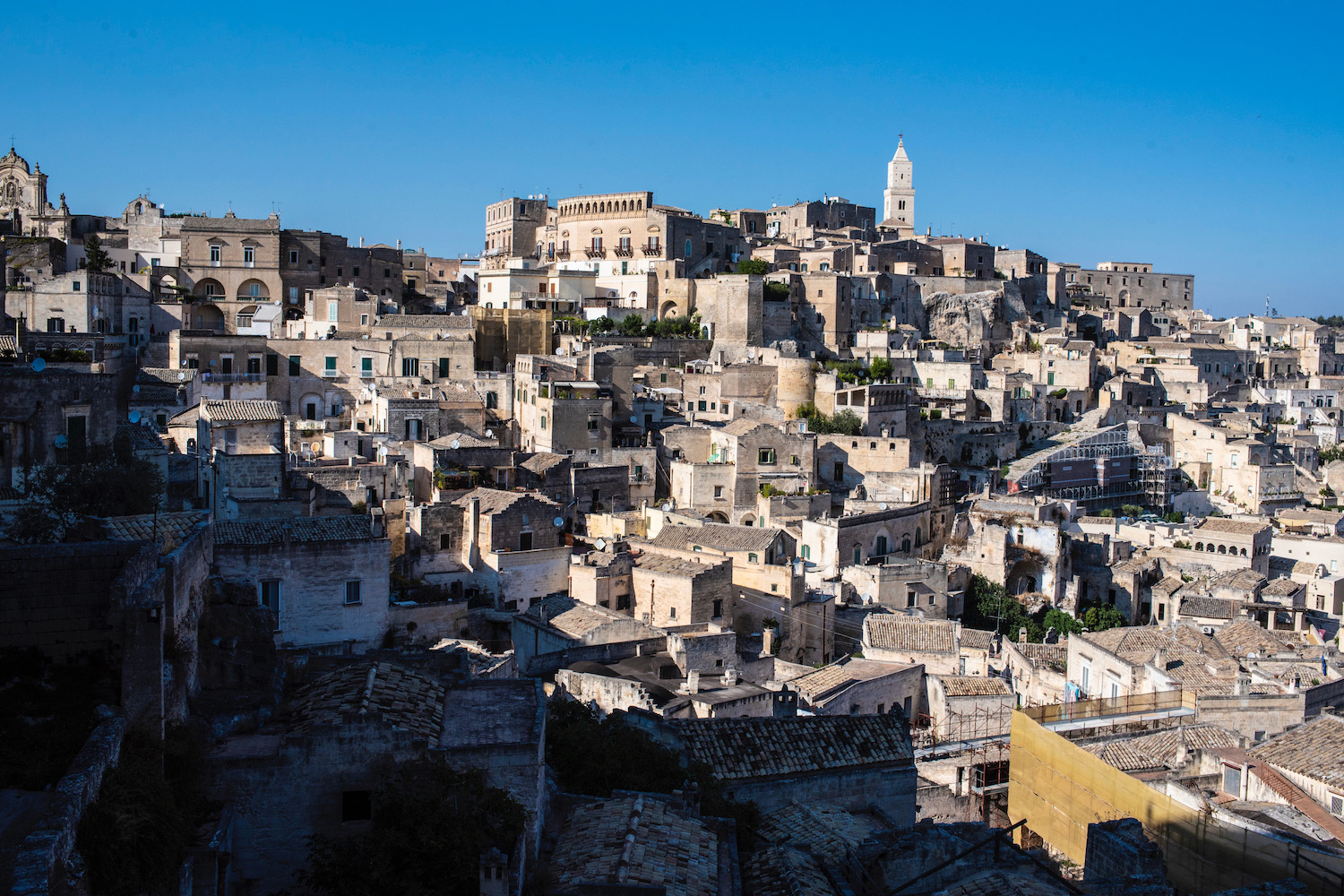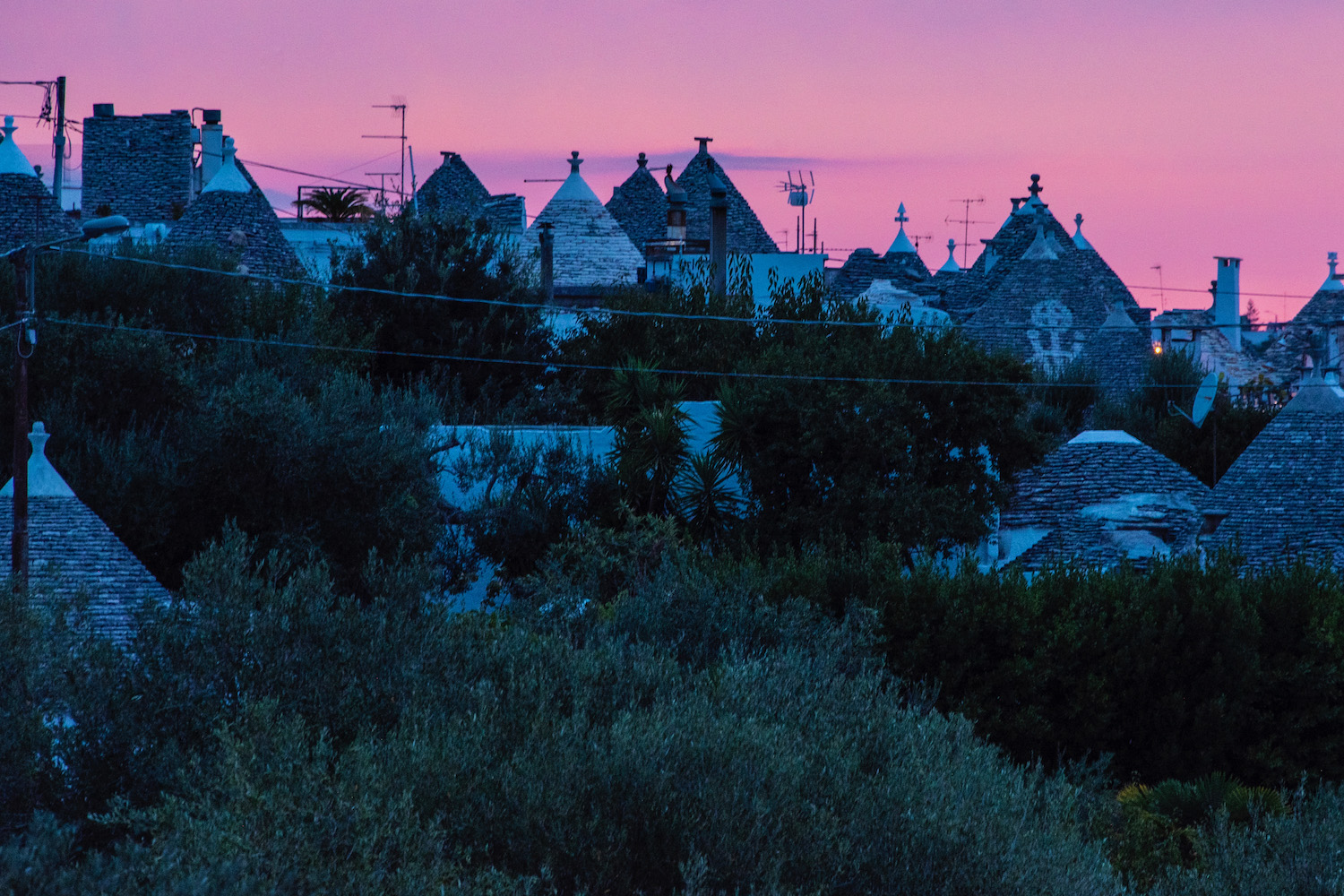Is Puglia worth visiting? Until very recently, my answer would’ve been “absolutely.” The heel of Italy‘s boot was, for a time, one of my favorite parts of the country.
That changed quite dramatically during my latest visit there, for reasons I’ll explain throughout this piece. I often pinched myself as I drove around, and not in a good way. “Could I have imagined how amazing Puglia was?”
Just so we’re clear, I won’t be going so far as to recommend that you don’t visit Puglia. However, I will share candid reasons I may not go back there in the future, and I certain hope you’ll meditate on them.

Why I Fell In Love With Puglia
For a long time, I insisted that Puglia was worth visiting, even when friends and colleagues provided me with testimony to the contrary. The first time I traveled there, in 2013, my trip was absolutely blissful. After starting in Otranto with its paradisiacal beaches, I headed south to sun-bleached Santa Maria di Leuca, looping back around to the walled, seaside city of Gallipoli, where I left at least a few pieces of my heart.
Looking back on my trip, of course, there were plenty of flaws. I didn’t have much money back then, which meant I got around mostly by bus and had to forgo the best Puglia hotels and restaurants. Moreover, my photography skills at the time left a lot to be desired; my memories are more compelling than most of the photos I shot. My recent return to Puglia suggests my mind was just as imperfect at capturing images as my former camera, however.

5 Reasons Puglia is Overrated
Getting around is a nightmare
When I came back to Puglia in 2021, I assumed that having a rental car would make traveling around the region easier—how wrong I was! In addition to the fact that several places I wanted to visit were inaccessible by car (more on that in a moment), slow speed limits and other deterrents in most cities and towns canceled out most of the advantage driving would otherwise have brought.
Many amazing places are off-limits
Beaches were most of the reason I once considered Puglia worth visiting. However, many of my favorites in Otranto (i.e. most everywhere besides the main city beaches) are now private, either trapped behind the walls of resorts, or behind for-pay parking lots and entrance booths. I guess it’s petty to bemoan this—nothing good stays free for long—but it does make me wonder why I’d ever come back to Puglia again.
Media overexposure
I feel like there was a time, maybe around 2015 or 2016, that literally every travel blogger besides me was singing the praises of Matera. Now, Matera is awesome—it’s one of the world’s oldest cities, after all—but it’s not the end-all be-all of Europe, or even Italy. And while average travelers are not as plugged-in to travel bloggers as I am, overexposure does diminish the impact a trip to Puglia might otherwise have.
High prices, low value
Low prices were never a factor in why I found Puglia worth visiting. The region was always as expensive as Rome or Florence, which stung at lot more when I was 28 than it did at 36. At the same time, given the grievances I aired in the preceding paragraphs, the relatively high prices you pay to travel through Puglia seem to sting even more, making it seem even more low value by comparison.
It’s just not all that
Before I arrived in Alberobello in mid-September 2021, an Italian friend of me warned me that the city would underwhelm me—she wasn’t wrong. While the iconic trulli houses were cute—they were stunning at sunset—I saw what she meant. Puglia, taken in the context of your Italy trip, is charming but not incomparable. It’s an enticing extra place to see, but not essential to understanding the country.

How Many Days Do You Need in Puglia?
Assuming my trip report from 2021 hasn’t totally put you off visiting Puglia, I’d recommend spending at least 3-4 days here. If you take your time, you may be able to find your way around some of the inconveniences I experienced on my admittedly whirlwind return trip. On the other hand, you don’t want to stay too long—if you do dislike Puglia, every additional day you spend will seem torturous.
The thing is, if you end up feeling Puglia is worth visiting, you can always come back in the future. (I wouldn’t recommend waiting eight years, though, lest you come back jaded and devastated like I did). Spending two days in Salento (i.e. southern Puglia) and then devoting a day each to Alberobello and Matera seems like a recipe for success, at least as much success as is possible here.

Other FAQ About Travel in Puglia
What is Puglia best known for?
Puglia, to the extent it’s known at all, is known for the trulli houses of Alberobello, the ancient city of Matera and for having some of Italy’s best beaches. Although it does have vineyards and relatively good wine, I personally find suggestions in the media that it’s “the next Tuscany” to be dramatic and overblown.
Which is better, Sicily or Puglia?
This comparison is a bit unfair, given that Sicily is a massive island (and was an independent kingdom, for most of its history) and Puglia is a moderately-sized and poorly demarcated peninsula. Indeed, I find Sicily to be much more of a self-contained destination, from its singular cities and towns, to iconic natural scenery like Mt. Etna, to culinary delights like arancini and caponata.
The Bottom Line
Is Puglia worth visiting? I’ll leave the answer to that question for you to decide. However, if you’re headed there will sky-high expectations due to something you read online, I’d suggest you adjust them. Early visits to Puglia certainly impressed me. However, I now wonder whether that was due to Puglia’s inherent status as one of the most beautiful places in Italy, or whether my relative inexperience as a travel the last few times I was there caused me to see the region with rose-colored glasses.

Robert Schrader is a travel writer and photographer who’s been roaming the world independently since 2005, writing for publications such as “CNNGo” and “Shanghaiist” along the way. His blog, Leave Your Daily Hell, provides a mix of travel advice, destination guides and personal essays covering the more esoteric aspects of life as a traveler.








